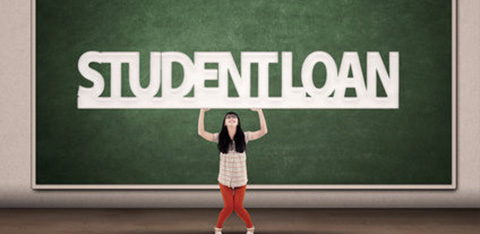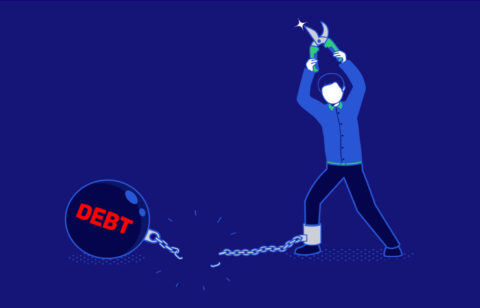Did you know that student loan debt now exceeds credit card debt? Also, according to a recent study from the credit-reporting bureau TransUnion, more than 50% of student loans are in a deferred status as the loan payments have been temporarily suspended. In fact, these loans now represent 43.5% of all balances on student loans. This study also revealed that these deferred loans had balances that increased in the last five years from $228 billion in 2007 to 388 billion. And the average debt in student loans per borrower is now $23,829.
Why so many deferrals?
The major reason for these deferrals is probably the fact that more than 50% of college graduates under the age of 25 are either underemployed or unemployed.
What to do about your debts
If you’re one of those people who have more than $20,000 in student loan debts and are struggling to meet your obligations, the one thing you do not want to do is default on your loans. It’s important that you figure out some way to pay them back because defaulting on these loans has some serious consequences. For example, the full amount that you owe may be due immediately – not just the past due amount.
It could get worse
Your loan could very well be turned over to a collection agency and you will owe late fees and collection costs. Your credit record will be damaged and your federal income tax refunds could be seized and applied to help pay for what you owe on your loan. Even worse, your lender may sue you for the amount of money you owe and you could see your wages garnished. You won’t be able to get a professional license in some states and you will be unable to get any more federal financial aid, including any you would want to get to help your children.
Debt collectors
Even the federal government now turns over some student loan debts to collection agencies. In fact, last year the federal government paid more than $1.4 billion to 23 private debt collection services providers to collect student loan debts. If your account is turned over to one of these collectors, you actually lose the protections you normally get in the Higher Education Act. This means no affordable payment plans and no cancellation of your loans in the event of circumstances such as a disability or death.
Not even a chapter 7 bankruptcy
A chapter 7 bankruptcy will discharge (get rid of) many of your unsecured debts but not student loan debts. Nor will it discharge alimony or child support payments or back taxes.
How to avoid a default
Of course, the best way to avoid defaulting on a student loan is to keep your payments current. In the event you can’t do this, you need to contact your loan servicer or lender the minute you realize that you won’t be able to make your payments. You should also review your budget (you do have a budget, right?) to see if there are areas where you could cut your spending in order to make your payments. If this doesn’t work, you might get a second job to help make those loan payments or switch to a less costly repayment plan.
If none of these work
If you can’t successfully use any of these strategies, you may have to pursue a loan deferment or forbearance to avoid defaulting. As noted above, a bankruptcy won’t discharge student loan debts unless you can get what’s called a hardship discharge. To qualify this, you would have to be able to show you were basically penniless. Plus, you will have to prove to the bankruptcy court that you did everything possible to repay the loan before you filed for bankruptcy.





